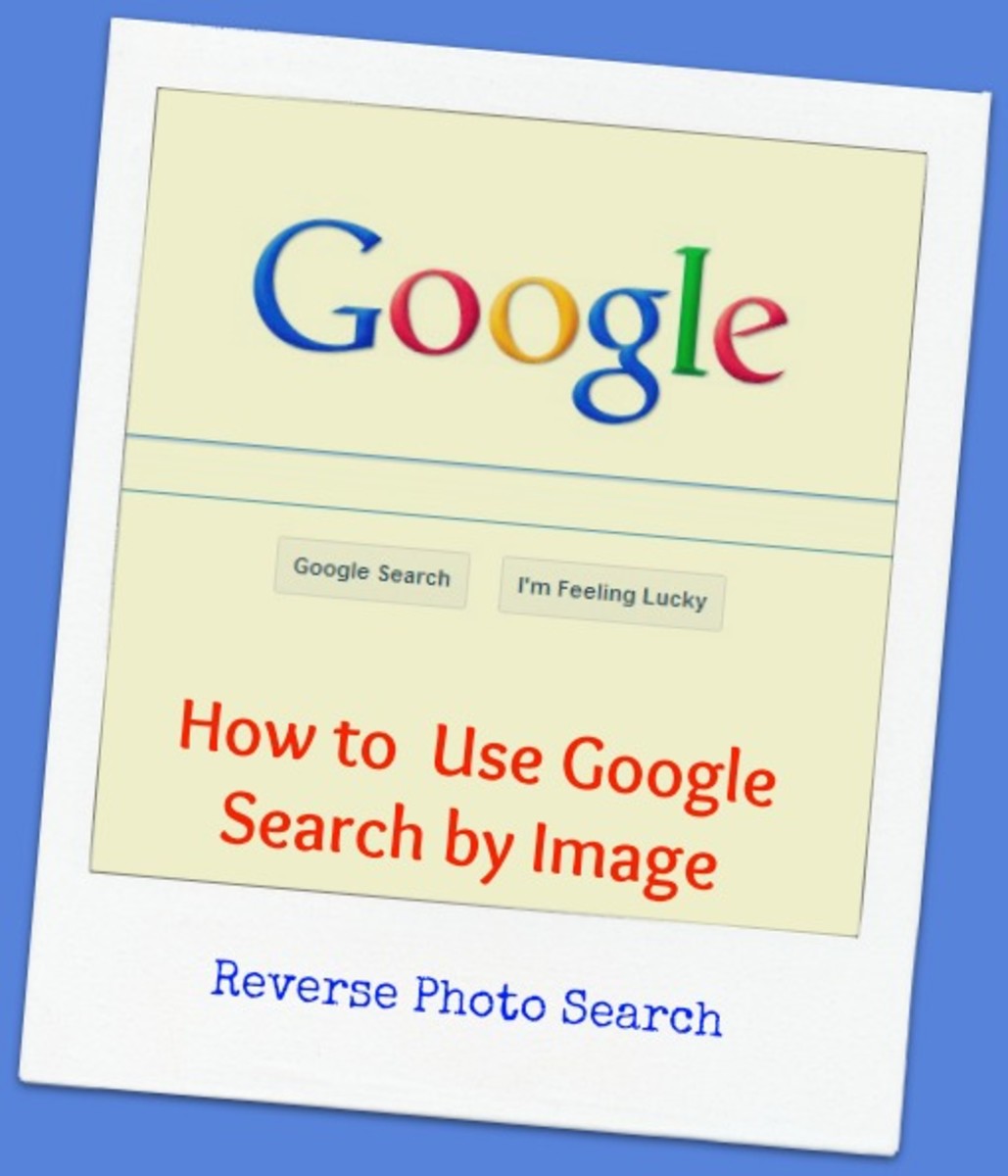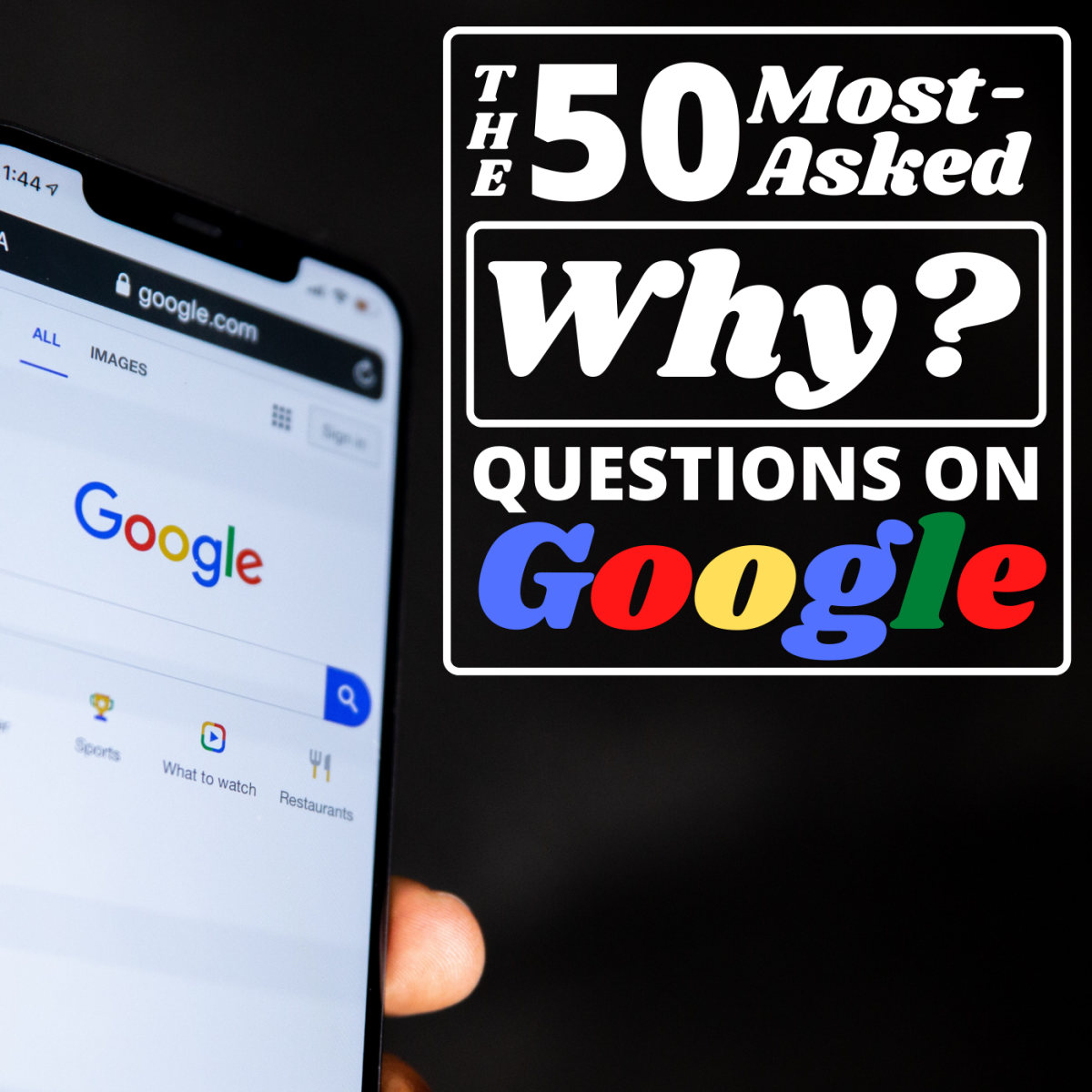- HubPages»
- Technology»
- Internet & the Web»
- Search Engines
Searching Google - From Beginner to Master
The following article is a concise guide to crafting effective Google queries
Google the world's most popular search engine is a powerful tool that even a beginner can quickly become proficient with. The following tips will help you to easily find the information that you are searching for.
THE BASICS
1) Google searches are not case sensitive. Searching for 'sex pistols' and 'SEX PISTOLS' will both return the same results. So leave the capitalization for that English paper you were working on.
2) The "+" and "-" operators are used to force Google to include or discard terms from search results. For example, the following search - 'rolling +stones -pins' will return results that contain both 'rolling' and 'stones' whilst discarding results containing the word 'pins'.
3) Google searches exclude common words like "I", "the", "and" etc. This is done to speed up the search. Google can be forced to include these words in a search if you put a "+" in front of them. They will also be included if they are used within a phrase surrounded by quotation marks.
4) To search for an exact phrase you need to enclose the phrase in quotation marks. For example: "To be or not to be". This search will only return pages that contain this exact phrase. If you entered the terms without the quotation marks your search would return both pages that contained the exact phrase and pages that contain some or all of these words individually. Obviously the pages that contain the words individually are unlikely to be particularly relevant to your search. Using quotation marks will help restrict the search results to those that are most relevant.
5) Use multiple search terms to ensure you find exactly what you are looking for. If you are searching for the Onion news site and you just search with 'onion' Google will return 29,600,000 results. Most of these won't be relevant. By adding 'news' as an additional search term Google returns 961,000 results. Searching with multiple terms helps to narrow down the number of sites that may be relevant to your search. This makes it far easier for you to find what you are after.
6) To find pages that contain either of two search terms you should use an uppercase "OR" between the two search terms: eg 'seagull OR eagle'
ADVANCED TIPS
1) Google allows wildcard searches with the "*" operator. Unfortunately, you are not able to search on partial words: eg 'bra*'. At present Google wildcard searches only work for complete words or phrases. For example: 'famous * player' will return results for:
-'famous tennis player'
-'famous Latvian soccer player'
-'famousbasketball player' etc,
2) Google has a synonym search. To use this you place the "~" operator in front of the word you want synonyms for. For example, '~house'. This search will return results for the word 'house' and its synonyms (abode, dwelling, flat, home etc).
3) It is also possible to restrict the Google search to a single website. This is done by entering the search terms followed by the word "site:" and then the domain name. For example, if you were looking for information on the golden wattle from the Botanic Garden site your search would look like this: '"golden wattle" site: botanicgarden.com'.
4) Google allows you to search for a number range. This is done by separating the two numbers by two periods like so '10..20'. When combined with a search term this can be quite a useful search. The following example shows how to find a car within a certain price range: 'kia carnival $15000..$25000'. It is necessary to include either a unit of measurement or give Google some idea of what the numbers represent so that the search only returns relevant results.
5) To search for documents with a specific file type you use "filetype:" in your search. The following example will locate spreadsheets with the word 'secret' in their name: 'secret filetype:xls'. Google can currently search for the following file types: pdf, ps, wk1, wk2, wk3, wk4, wk5, wki, wks, wku, lwp, mw, xls, ppt, doc, wks, wps, wdb, wri, rtf, swf, ans, txt
6) If you ever wanted to know which pages link to a certain page you can use "link:" in your search like so: 'link:http://www.hubpages.com'. This returns all the pages linking to that particular website. In the case of HubPages there are some 571,000 pages that link to this particular address.
7) You will never need a dictionary again if you use Google's "define:" in your search. This is done by placing the word you want a definition for immediately after 'define:', like so: 'define:succinct'. This results in several short definitions for the word in question.
8) Last but not least. Google can also be used as a calculator. Google supports all the standard mathematical symbols. If you type your problem into the search box Google will return the answer.
Google is an extremely capable search engine. However, what you get out of it relies heavily on what you put into it. The tips above should give you the knowledge that you need to craft an effective query which returns highly relevant results.








